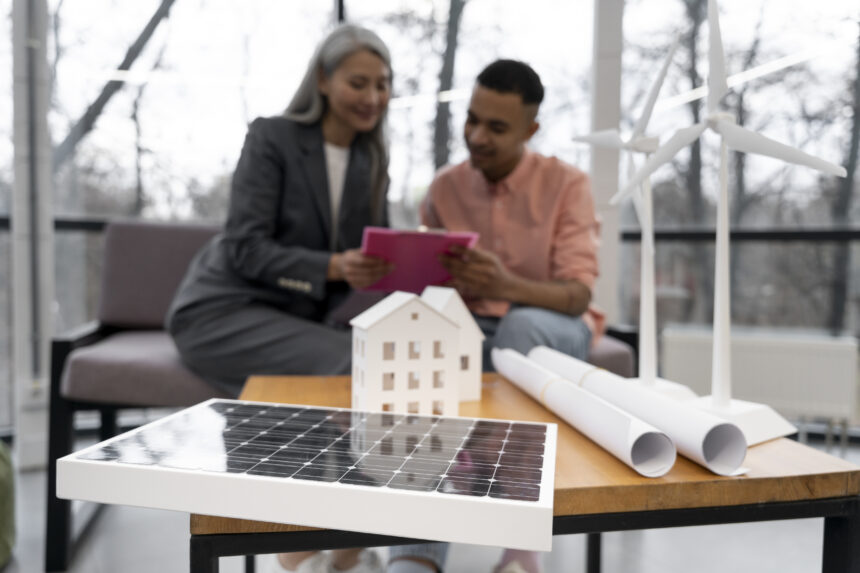Title: Cutting Energy Costs: Energy-Saving Tips for South African Homes
Introduction: In today’s world, energy efficiency is not only beneficial for the environment but also for our wallets. South African households often face the challenge of high energy costs, particularly during periods of increased electricity usage. However, by adopting energy-saving practices, homeowners can significantly reduce their energy consumption and lower their utility bills. In this article, we present a range of practical and effective tips to help South African households cut energy costs and create a more sustainable living environment.
- Optimize Your Lighting: Switching to energy-efficient light bulbs, such as LED or CFL bulbs, can save a significant amount of energy. These bulbs use up to 80% less electricity and last longer than traditional incandescent bulbs. Additionally, make it a habit to turn off lights when not in use and make the most of natural light during the day.
- Manage Your Heating and Cooling: Heating and cooling can be major contributors to energy consumption. Set your thermostat at an optimal temperature (around 18-20 degrees Celsius in winter and 24-26 degrees Celsius in summer) to avoid excessive energy usage. Use ceiling fans to circulate cool air in summer, and consider insulating your home to maintain comfortable indoor temperatures.
- Efficient Water Heating: Water heating accounts for a significant portion of energy consumption in South African homes. To reduce energy usage, insulate your geyser or water heater to minimize heat loss. Set the thermostat temperature to 60 degrees Celsius, which is sufficient for most households. Consider installing a solar water heater, which can dramatically reduce electricity usage for heating water.
- Manage Electronics and Appliances: Many electronic devices and appliances continue to consume energy even when not in use. Unplug devices or use power strips with an on/off switch to completely cut off standby power. Choose energy-efficient appliances with high energy ratings when purchasing new ones. When possible, use natural ventilation instead of air conditioning and dry clothes on a clothesline instead of a dryer.
- Insulate Your Home: Proper insulation helps maintain a comfortable indoor temperature and reduces the need for excessive heating or cooling. Insulate your roof, walls, and windows to prevent heat transfer. Seal gaps and cracks around doors and windows to prevent drafts. Good insulation not only reduces energy consumption but also enhances the overall comfort of your home.
- Smart Water Usage: Conserving water also indirectly saves energy. Fix any leaks promptly, as dripping faucets and pipes waste both water and the energy used to heat it. Install water-efficient showerheads and faucets to reduce hot water consumption. Collect rainwater for gardening and other non-potable uses, which can reduce the demand on municipal water supplies.
- Efficient Kitchen Practices: The kitchen is a significant energy-consuming area. Optimize energy usage by using energy-efficient appliances, such as induction cooktops and energy-rated refrigerators. Only run the dishwasher when it’s fully loaded, and use energy-saving settings. Use lids on pots and pans to reduce cooking time and save energy. Consider using a microwave or toaster oven for small cooking tasks instead of the larger oven.
- Unplug Chargers and Power Adapters: Chargers and power adapters left plugged in continue to draw small amounts of electricity even when not actively charging a device. Unplug them when not in use to avoid unnecessary energy wastage.
- Use Natural Ventilation and Lighting: Make the most of natural resources by utilizing natural ventilation and lighting. Open windows and use cross-ventilation to cool your home during mild weather. Make use of curtains, blinds, and shading to block out excessive sunlight and heat. Use skylights or install reflective tubes to maximize natural lighting during the day.
- Educate and Involve Your Family: Ensure that everyone in your household is aware of energy-saving practices and actively participates in reducing energy consumption. Teach children about the importance of energy conservation and involve them in turning off lights and appliances when not in use.
Conclusion: By implementing these energy-saving tips, South African homeowners can significantly reduce their energy costs while contributing to a more sustainable future. Small changes in our daily routines and habits can make a substantial difference in energy consumption. Let’s embrace these practices and work together to create more energy-efficient homes and a greener South Africa.










